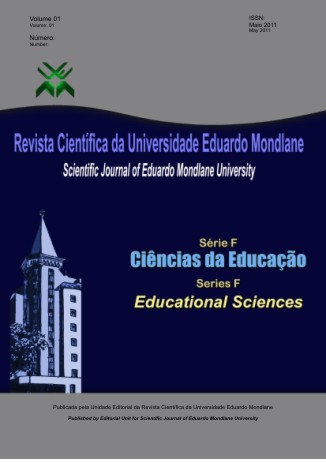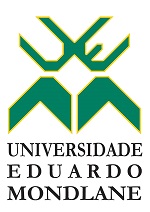Diagnóstico das necessidades de formação dos professores em exercício nos institutos médios agrários de Moçambique
Keywords:
ensino médio técnico-agrário, lacunas ou necessidades de formação, professores em exercícioAbstract
This paper presents the findings of a survey on training needs’ assessment among teachers in-service in Mozambican pre-university agricultural technical institutes. The survey was undertaken in 2013, aiming at informing the process of curriculum design of a joint undergraduate program in Agriculture and Professional Education, a project of the Faculty of Agronomy and Forestry Engineering and the Faculty of Education, Eduardo Mondlane University. The research, mainly quantitative, was based on a sample of 67 teachers (25% of the total population) in-service in Mozambican pre-university agricultural technical institutes who answered a close-ended questionnaire on their self-assessment regarding their training needs. From the findings obtained through a questionnaire administered to teachers, two conclusions are drawn. Firstly, the academic, professional and pedagogic qualifications of the teachers correspond to the ideal profile of a teacher of professional-agricultural education. Secondly, although the teachers generally self-assess positively their command of the different knowledge domains required by a teaching profession in professional-agricultural education, they feel that they need more training in aspects related to competence-based teaching approach, to the understanding of the nature of PIREP’s reform and to the command of generic competences such as ICT and foreign languages.
References
Affairs, B. O. Training Ranks and File Employers Survey. Washington: Personnel Policy Forum, 1962. v. 66
Barbazette, J. Training needs assessment: methods, tolls and techniques. San Francisco: Pfeiffer, 2006.
Billetoft, J. TVET In Sub-Saharan Africa-an Institutional Perspective: the case of Mozambique. International Institute for capacity building in Africa, v. 13, n. 2, p. 7-9, december de 2011.
Brown, F. W.; Dodd, N. G. Utilizing organizational culture gap analysis to determine human resource development needs. Leadership & Organization Development Journal, v. 19, n. 7, 374-385, 1998.
Brown, M.; Boyle, B.; Boyle, T. Professional development and management training needs for heads of department in UK secondary schools. Journal of Educational Administration, v. 40, n. 1, p. 31-43, 2002.
BUREAU OF NATIONAL AFFAIRS. Training Ranks and File Employers Survey. N. 66. Washington: Personnel policies Forum, 1962, v. 66.
Bureau of National Affairs. Training Ranks and File Employers Survey. Washington: Personnel policies Forum, 1969. v. 88.
Cannon, J.; Kitchel, A.; Duncan, D. W. Identifying Perceived Professional Development Needs of Idaho Secondary CTE Teachers: Program Management Needs of Skilled and Technical Science Teachers. Journal of Industrial Teacher Education, v. 47, n. 1, p. 42-69, 2010.
Chiu, W.; Thompson, D.; Mak, W. M.; Lo, K. L. Re-thinking training needs analysis: A proposed framework for literature review. Personnel Review, v.28, n. ½, p. 77-90, 1999.
D`Hainaut, L. Les besoins en education, in Programmes d`études et education. Paris: UNESCO, 1979.
Duarte, C. S. Análise das necessidades de formação contínua de professores dos cursos de educação e formação. Lisboa: Universidade de Lisboa (Dissertação. Mestrado em Educação, Universidade de Lisboa, 2009).
Ferreira, R. R.; Abbad, G. Training Needs Assessment: where we are and where we should go. Brazillian Administration Review, p. 77-99, 2013.
Formosinho, J. Formação Contínua e Carreira Docente-Uma Análise Organizacional. Braga: Instituto de Estudos da Criança, 1989.
Gauthier, C. Pour une théorie de la pédagogie: recherches contemporaines sur le savoir des enseignants. Bruxelles: De Boeck, 1997.
Gilbert, T. F. Praxeonomy: a systematic approach to identifying training needs. Management of Personnel Quaterly, p. 20-33, 1967.
Goldstein, I. L.; Ford, J. K. Training in Organizations. Belmont: Wadsworth, 2002.
Hennessy, D.; Hicks, C.; Hilan, A.; Kawonal, Y. A methodology for assessing the professional development needs of nurses and midwives in Indonesia. Human Resources for Health, v. 4, n. 8, p. 1-8, 2006.
Hicks, C.; Hennessy, D. The use of a customized training needs analysis tool for nurse practitioner development. Journal of Advanced Nursing, v. 26, n. 2, p. 389-398, 1997.
Hussain, L.; Ali, U.; Abrar, M.; Shah, F. Training needs assessment of university teachers regarding use of computer resources. Gomal University Journal of Research, v. 27, n. 1, p. 135-142, 2011.
Jamil, R. Training Needs Analysis (TNA) Pratices: A survey of the top 1000 companies in Malasia. Disponível: http://eprints.utm.my/3776/1/ROSSILAHJAMIL75171.pdf; Acesso em: 23 de March de 2014.
Jorge, B. E. Necessidades de Formação Contínua de Professores de uma Escola Secundária na utilização pedagógicas das TICs. Lisboa: Universidade de Lisboa, 2008. (Dissertação. Mestrado Educação, Univesidade de Lisboa, 2008).
Kaufman. A possible taxonomy of needs assessment. Educational Technology. Educational Technology, v. 11, n. 17, p. 60-64, 1977.
Kawanami, S.; Kawamani, K. Needs analysis: how teachers perceive teacher training for English education at elementary school . Let Kyushu – Okinawa Bulletin, v. 12 , 29-43, 2012.
Kusumoto, Y. Needs Analysis: developping a teacher training program for elementary school homeroom teachers in Japan. Second Language Studies, v. 26, n. 2, p. 1-44, 2008.
Leigh, D.; Watkins, R.; Platt, W. A.; Kaufman, R. Alternate Models of Needs Assessment: Selecting the Right One for Your Organization. Human Resource Development Quaterly, v. 11, n.1, p. 87-93, 2000.
Mager, R.; Pipe, P. Analysing Performace Problems. California: Fearon Publishers, 1970.
Mahler, R.; Monroe, W. How industries determine the need for and effectiveness of training: PRB technical report. [Wanshington]: Department of the Army, 1952.
Mazula, B. Educação, Cultura e Ideologia em Moçambique. Porto: Afrontamento, 1995.
McGehee, W.; Thayer, P. Training in Business and Industry. New York: John Wiley and Sons, 1961.
Mckillip, J. Needs analysis: tool for the human services end education. London: Sage Publications, 1987.
MOÇAMBIQUE.MINED. Ensino Técnico-Profissional em Moçambique: problemas e perspectivas (Draft). Maputo: Direcção Nacional do Ensino Técnico-Profissional, 1992.
MOÇAMBIQUE. CONSELHO DE MINISTROS. Estratégia do Ensino Técnico e Profissional em Moçambique 2002-2011: mais técnicos, mais profissões, melhor qualidade . Maputo, 2011.
Moore, M.; Dutton, P. Training needs analysis: review and critique. The Academy Management Review, v. 3, n. 3, p. 532-545, 1978.
Nelson, R. R.; Whitener, E. M.; Philcox, H. H. The Assessment of End-User Training and Needs. Association for Computing Machinery, v. 38, n. 7, p. 27, 1995.
Odiorne, G. S. Training by Objectives: an economic approach to management. New York: Macmillan, 1970.
Ostroff, C.; Ford, J. K. Assessing Training Needs: Critical Levels of Analysis. In: Goldstein, I. L. A. (eds). Training and Development in Organizations. San Francisco: Jossey-Bass Publishers, 1989. P. 25- 62.
Patrício, M. Visão prospectiva do Professor para os anos 2000. In: Patrício, M. Formar Professores para a escola Cultural no Horizonte dos anos 2000. Porto: Porto Editora, 1997.
Perrenoud, P. Dix Nouvelles Compétences pour Enseigner: Invitation au voyage. Paris: ESF, 2006.
Pinto, A. P. O subsistema do ensino técnico-profissional em Moçambique e a viragem do século. In: CONGRESSO INTERNACIONAL SABER TROPICAL EM MOÇAMBIQUE, 2013. Atlas... Lisboa: Instituto de Investigação Científica Tropical, 2013. P. 1-13.
PIREP. PIREP. Disponível em: hhtp://www.pirep.gov.mz/index.php/portal_pt/pirep/; Acessado em: 19 de June de 2010.
PIREP. Estratégia para a Formação de Formadores da Educação Profissional 2011-2015. Maputo: COREP, 2011.
Reid, M. A.; Barrington, H. Training interventions: managing employee development. 50. ed. London: Institute of Personnel and Development, 1997.
Rodrigues, A.; Esteves, M. A análise de necessidades na formação de professores. Porto: Porto Editora, 1993.
Shulman, L. Those who Understand: knowldege growth in teaching. Educational Research, v. 17, n. 1, p. 4-14, 1986.
Tardif, M. Saberes docentes e formação profissional. Petrópolis: Vozes, 2002.
Versloot, B. M.; Jong, J. A.; Thijssen, J. G. Organisational context of structured on-the-job Training . International Journal of Training and Development, v. 5, n. 1, p. 2-22, 2001.
While, A.; Ullman, R.; Forbes, A. Development and validation of learning needs assessment scale: a continuing professional education tool for multiple sclerosis specialist nurses. Journal of Clinical Nursing, v. 16, n.6, p. 1099-1108, 2007.
Wright, P. C.; Geroy, G. D. Needs Analysis Theory and the Effectiveness of Large-Scale Government-Sponsored Training Programmes: a case study. The Journal of Management Development, v. 11, n.5, p. 15, 1992.
Yamashiro, C. R.; Leite, Y. A emergência da formação de professores: pesquisas afins. In: SEMINÁRIO DE PESQUISA EM EDUCAÇÃO NA REGIÃO SUL, 9. São Paulo, 2012. Anais... São Paulo: ANPED, 2012.
Zavale, N. C. Le néolibéralisme et l’éducation: vers l’émergence de l’approche par compétence sur les curriculums scolaires au Mozambique? Saarbrücken: Presses Académiques Francophones, 2013.
Zavale, N. C. Using Michael Young’s Analysis on Curriculum Studies to Examine the Effects of Neoliberalism on Curricula in Mozambique. Policy Futures in Education, v. 11. n. 5, p. 621-636, 2013.
Downloads
Published
How to Cite
Issue
Section
License
Copyright (c) 2020 Nelson Casimiro Zavale

This work is licensed under a Creative Commons Attribution-ShareAlike 4.0 International License.






